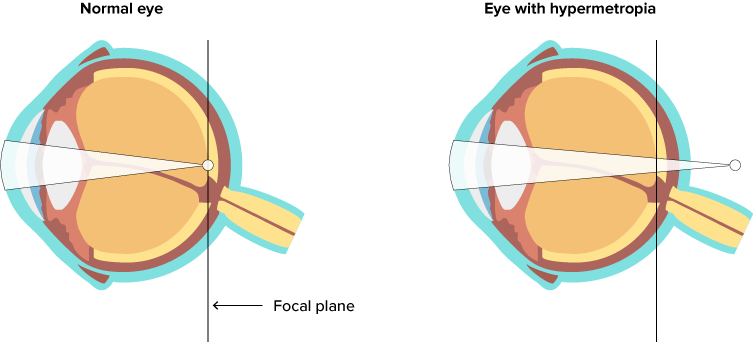Hypermetropia means long sightedness.
Long sightedness affects your ability to see objects close to you. You will be able to see objects further away, however objects closer would be out of focus or difficult to see.

What causes long sightedness?
In long sightedness, the image is formed behind the retina, as the eyeball is too short, or the cornea or crystalline lens does not bend the light enough to form on the retina.
There are lots of causes of short sightedness, including genetics, age and certain medical conditions like diabetes, as the increase in glucose can change the biochemistry of the crystalline lens.
Symptoms you may experience due to long sightedness:
- Close objects seem out of focus or fuzzy, but distance objects are clear
- Tired eyes after reading, writing or doing computer work
- Burning or aching eyes whilst doing close work
- Headaches whilst doing close work
- Having to squint whilst looking at close objects
Children and long sightedness
If a child has long sightedness, and it is not diagnosed early, it can cause them to have difficulty reading and over-focusing, which can cause double vision. This can result in either a squint, or a lazy eye. A squint is when the eye turns in, out, up or downwards and doesn’t align properly with the other eye. Lazy eye refers to when the vision in the eye reduces, causing one eye to dominate.
Treating long sightedness
Your optometrist can test your eyes and prescribe glasses or contact lenses specific to your needs. This will usually take the form of a convex, plus powered lens, which allows the image to move onto the retina, enabling you to see clearly.

